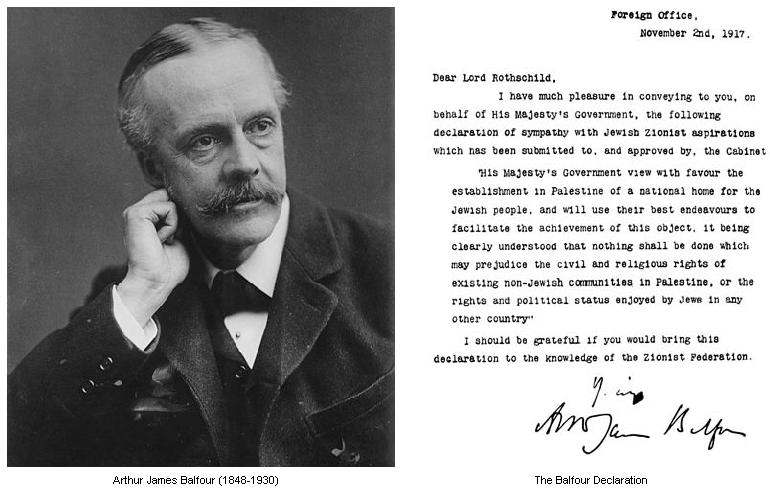On November 2, 1917, Foreign Secretary Arthur James Balfour writes an important letter to Britain’s most illustrious Jewish citizen, Baron Lionel Walter Rothschild, expressing the British government’s support for a Jewish homeland in Palestine. The letter would eventually become known as the Balfour Declaration.
Britain’s support for the Zionist movement came from its concerns regarding the direction of the First World War. Aside from a genuine belief in the righteousness of Zionism, held by Lloyd George among others, Britain’s leaders hoped that a statement supporting Zionism would help gain Jewish support for the Allies.
On November 2, Balfour sent his letter to Lord Rothschild, a prominent Zionist and a friend of Chaim Weizmann, stating that: “His Majesty’s Government view with favor the establishment in Palestine of a national home for the Jewish people.”

The influence of the Balfour Declaration on the course of post-war events was immediate: According to the “mandate” system created by the Versailles Treaty of 1919, Britain was entrusted with the administration of Palestine, with the understanding that it would work on behalf of both its Jewish and Arab inhabitants.


























